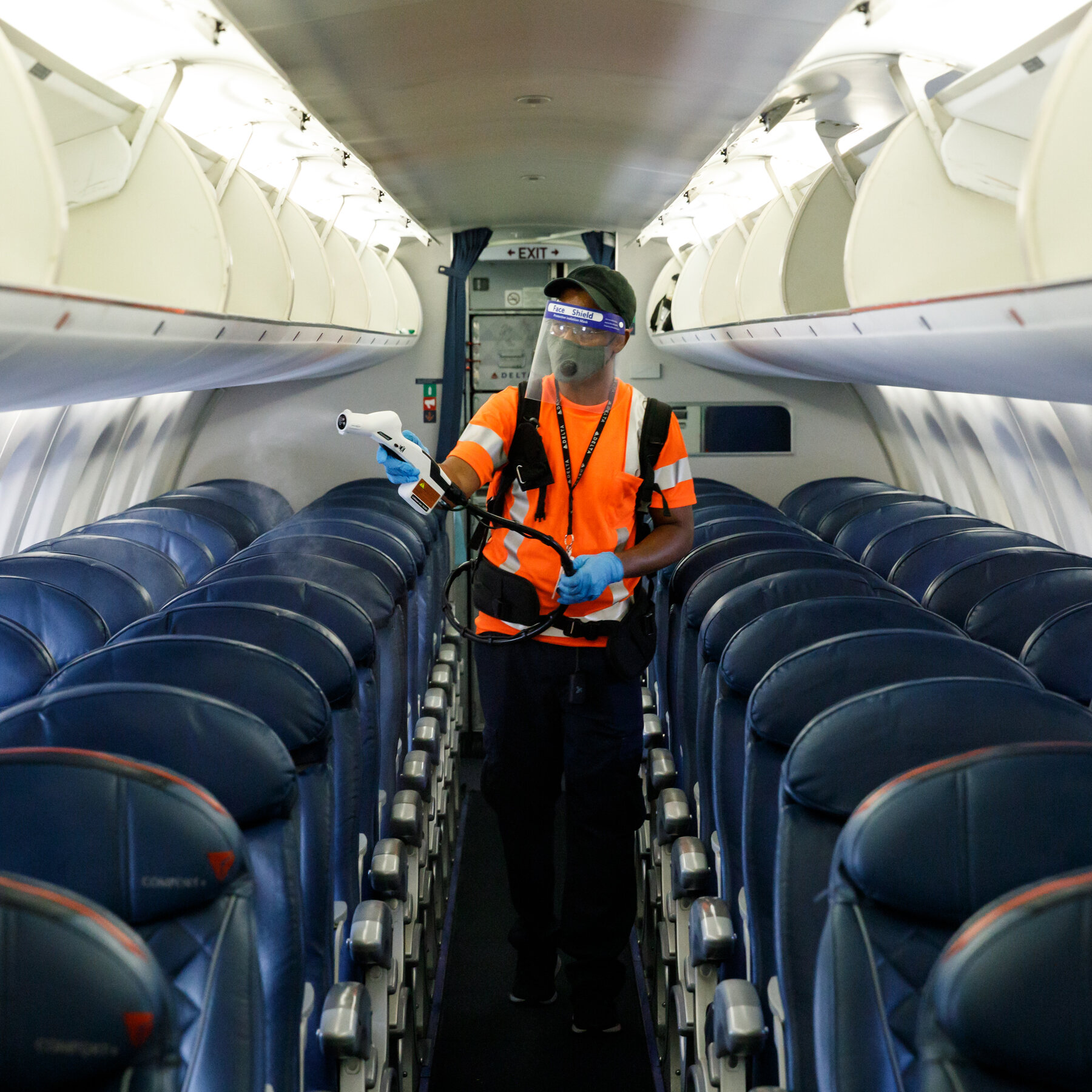- One vital practice that has gained prominence is pre-flight plane spraying, also known as disinfection.
In the wake of the global COVID-19 pandemic, airlines worldwide have prioritized the implementation of stringent safety and hygiene measures to protect passengers and crew during air travel.
One vital practice that has gained prominence is pre-flight plane spraying, also known as disinfection.
This essential procedure involves the thorough cleaning and sanitization of aircraft interiors and surfaces to eliminate harmful pathogens.
Here are the reasons why pre-flight plane spraying has become a critical step in ensuring the highest standards of safety and hygiene in air travel:
1. Virus Mitigation
The primary motivation behind pre-flight plane spraying is the ongoing battle against the spread of viruses, including COVID-19.
Airlines have implemented robust disinfection protocols to minimize the risk of transmission onboard aircraft. By thoroughly disinfecting surfaces, airlines aim to create a safe environment that reduces the potential for viral contamination.
2. Enhanced Safety
Clean and sanitized aircraft interiors significantly contribute to a safer flying experience.
Pre-flight spraying targets high-touch surfaces such as tray tables, armrests, and lavatories, reducing the likelihood of passengers coming into contact with harmful pathogens.
By implementing these measures, airlines strive to create a hygienic environment that safeguards the well-being of passengers and crew alike.
3. Cabin Crew Protection
Pre-flight spraying protects cabin crew members interacting with many passengers daily. By disinfecting the aircraft thoroughly, airlines aim to minimize the risk of crew members being exposed to contagious diseases while performing their duties.
This proactive approach prioritizes the health and safety of airline personnel.
4. Passenger Confidence
Regular disinfection practices instil confidence in passengers regarding the safety of air travel. Knowing that the aircraft has undergone comprehensive cleaning and sanitization procedures helps alleviate concerns about flying.
Pre-flight plane spraying reassures passengers that airlines are taking proactive measures to create a hygienic environment, thereby restoring confidence in air travel.
5. Air Quality
In addition to disinfection, airlines address air quality concerns by employing High-Efficiency Particulate Air (HEPA) filters. These filters effectively circulate and clean the cabin air, removing particles, including viruses.
By ensuring a continuous supply of fresh, clean air, airlines further enhance the overall air quality and hygiene onboard their aircraft.
Airlines' Commitment
Leading airlines have made substantial investments in maintaining the well-being of passengers and crew members. They adhere to guidelines from health organizations and authorities to establish and maintain comprehensive cleaning routines.
The implementation of pre-flight plane spraying is a testament to airlines' unwavering commitment to upholding the highest standards of safety and hygiene.












